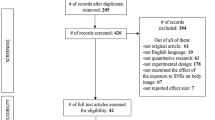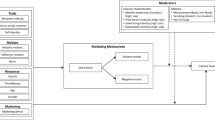Abstract
The current study aimed to test the perceivers’ ratings of likability and their willingness to become friends with targets who have different ratios of warmth to competence. In Study 1, we recruited 106 females and 61 males. The results of Study 1 showed that perceivers were reluctant to become friends with targets that had extreme ratios of warmth to competence (0:5 or 5:0). In Study 2, we recruited 137 males and 164 females. The results of Study 2 showed that male perceivers were willing to become friends with a female target whose ratio of warmth to competence was 5:0 and unwilling to become friends with a male target whose ratio was 0:5. Female perceivers were unwilling to become friends with a female target whose ratio was 0:5. Moreover, participants were unwilling to choose targets with a ratio of 5:0 as partners in a competition context. These results could help researchers understand how the process of impression formation works when considering different ratios of warmth to competence.





Similar content being viewed by others
Availability of Data and Materials
Our data could be got through https://doi.org/10.6084/m9.figshare.7628873.v1
Code availability
Not applicable.
References
Abele, A. E., & Brack, S. (2013). Preference for other persons’ traits is dependent on the kind of social relationship. Social Psychology, 44, 84–94. https://doi.org/10.1027/1864-9335/a000138
Abele, A. E., & Bruckmüller, S. (2011). The bigger one of the “Big Two”? Preferential processing of communal information. Journal of Experimental Social Psychology, 47, 935–948. https://doi.org/10.1016/j.jesp.2011.03.028
Abele, A. E., Bruckmüller, S., & Wojciszke, B. (2014). You are so kind—and I am kind and smart: Actor–observer differences in the interpretation of on-going behavior. Polish Psychological Bulletin, 45, 394–401. https://doi.org/10.2478/ppb-2014-0048
Abele, A. E., & Wojciszke, B. (2007). Agency and communion from the perspective of self versus others. Journal of Personality and Social Psychology, 93, 751–763. https://doi.org/10.1037/0022-3514.93.5.751
Abele, A. E., & Wojciszke, B. (2014). Communal and agentic content in social cognition: A dual perspective model. Advances in Experimental Social Psychology, 50, 195–255. https://doi.org/10.1016/b978-0-12-800284-1.00004-7
Bi, C., Ybarra, O., & Zhao, Y. (2013). Accentuating your masculine side: Agentic traits generally dominate self-evaluation, even in China. Social Psychology, 44, 104–109. https://doi.org/10.1027/1864-9335/a000144
Biernat, M., & Vescio, T. K. (2002). She swings, she hits, she’s great, she’s benched: Implications of gender-based shifting standards for judgment and behavior. Personality and Social Psychology Bulletin, 28, 66–77. https://doi.org/10.1177/0146167202281006
Blakemore, J. E. (2003). Children’s beliefs about violating gender norms: Boys shouldn’t look like girls, and girls shouldn’t act like boys. Sex Roles, 48, 411–419. https://doi.org/10.1023/A:1023574427720
Brescoll, V. L., Okimoto, T. G., & Vial, A. C. (2018). You’ve come a long way…maybe: How moral emotions trigger backlash against women leaders. Journal of Social Issues, 74, 144–164. https://doi.org/10.1111/josi.12261
Burgers, C., & Beukeboom, C. J. (2014). Stereotype transmission and maintenance through interpersonal communication: The irony bias. Communication Research, 43, 414–441. https://doi.org/10.1177/0093650214534975
Buss, D. (2012). Evolutionary psychology: The new science of the mind. Pearson.
Chang, L., Wang, Y., Shackelford, T. K., & Buss, D. M. (2011). Chinese mate preferences: Cultural evolution and continuity across a quarter of a century. Personality & Individual Differences, 50(5), 678–683. https://doi.org/10.1016/j.paid.2010.12.016
Cikara, M., & Fiske, S. T. (2012). Stereotypes and schadenfreude: Affective and physiological markers of pleasure at outgroups’ misfortunes. Social Psychological and Personality Science, 3, 63–71. https://doi.org/10.1177/1948550611409245
Eagly, A. H., Wood, W., & Diekman, A. B. (2000). Social role theory of sex differences and similarities: A current appraisal. In T. Eckes & H. M. Trautner (Eds.), The developmental social psychology of gender (pp. 123–174). Erlbaum.
Faul, F., Erdfelder, E., Buchner, A., & Lang, A. G. (2009). Statistical power analyses using g*power 3.1: Tests for correlation and regression analyses. Behavior Research Methods, 41, 1149–1160. https://doi.org/10.3758/BRM.41.4.1149
Fiske, S. T., Cuddy, A. J. C., & Glick, P. (2007). Universal dimensions of social cognition: Warmth, then competence. Trends in Cognitive Sciences, 11, 77–83. https://doi.org/10.1016/j.tics.2006.11.005
Henry, J., Helm, H. W. J., & Cruz, N. (2013). Mate selection: Gender and generational differences. North American Journal of Psychology, 15(1), 63–70.
Johannesen-Schmidt, M. C., & Eagly, A. H. (2002). Another look at sex differences in preferred mate characteristics: The effects of endorsing the traditional female gender role. Psychology of Women Quarterly, 26, 322–328. https://doi.org/10.1111/1471-6402.t01-2-00071
Kenworthy, J. B., & Tausch, N. (2010). Expectations about the accuracy and stability of warmth versus competence traits: An intergroup analysis. European Journal of Social Psychology, 38, 1121–1129. https://doi.org/10.1002/ejsp.543
Kervyn, N., Yzerbyt, V. Y., & Judd, C. M. (2011). When compensation guides inferences: Indirect and implicit measures of the compensation effect. European Journal of Social Psychology, 41, 144–150. https://doi.org/10.1002/ejsp.748
Kessels, U., Heyder, A., Latsch, M., & Hannover, B. (2014). How gender differences in academic engagement relate to students’ gender identity. Educational Research, 56, 220–229. https://doi.org/10.1080/00131881.2014.898916
Lemus, S. D., Moya, M., Lupiáñez, J., & Bukowski, M. (2013). Men in the office, women in the kitchen? Contextual dependency of gender stereotype activation in Spanish women. Sex Roles, 70, 468–478. https://doi.org/10.1007/s11199-013-0328-6
Prentice, D. A., & Carranza, E. (2010). What women and men should be, shouldn’t be, are allowed to be, and don’t have to be: The contents of prescriptive gender stereotypes. Psychology of Women Quarterly, 26(4), 269–281. https://doi.org/10.1111/1471-6402.t01-1-00066
Song, J. J., Zuo, B., Wen, F. F., & Yan, L. (2017). Math-gender stereotypes and career intentions: An application of expectancy-value theory. British Journal of Guidance & Counselling, 45, 328–340. https://doi.org/10.1080/03069885.2017.1283680
Sutherland, C. M., Young, A. W., Mootz, C. A., & Oldmeadow, J. A. (2015). Face gender and stereotypicality influence facial trait evaluation: Counter-stereotypical female faces are negatively evaluated. British Journal of Psychology, 106(2), 186–208. https://doi.org/10.1111/bjop.12085
Swencionis, J. K., & Fiske, S. T. (2016). Promote up, ingratiate down: Status comparisons drive warmth-competence tradeoffs in impression management. Journal of Experimental Social Psychology, 64, 27–34. https://doi.org/10.1016/j.jesp.2016.01.004
Thomae, M., & Houston, D. M. (2016). The impact of gender ideologies on men’s and women’s desire for a traditional or non-traditional partner. Personality and Individual Differences, 95, 152–158. https://doi.org/10.1016/j.paid.2016.02.026
Travaglia, L. K., Overall, N. C., & Sibley, C. G. (2009). Benevolent and hostile sexism and preferences for romantic partners. Personality and Individual Differences, 47, 599–604. https://doi.org/10.1016/j.paid.2009.05.015
Wei, Q. W., Li, M. Z., & Chen, X. C. (2018). Social class and social perception: Is warmth or competence more important? Acta Psychological Sinica, 50, 243–252. https://doi.org/10.3724/SP.J.1041.2018.00243
Wojciszke, B., & Abele, A. E. (2010). The primacy of communion over agency and its reversals in evaluations. European Journal of Social Psychology, 38, 1139–1147. https://doi.org/10.1002/ejsp.549
Wojciszke, B., Abele, A. E., & Baryla, W. (2010). Two dimensions of interpersonal attitudes: Liking depends on communion, respect depends on agency. European Journal of Social Psychology, 39, 973–990. https://doi.org/10.1002/ejsp.595
Wojciszke, B., Baryla, W., Parzuchowski, M., Szymkow, A., & Abele, A. E. (2011). Self-esteem is dominated by agentic over communal information. European Journal of Social Psychology, 41, 617–627. https://doi.org/10.1002/ejsp.791
Wojciszke, B., Bazinska, R., & Jaworski, M. (1998). On the dominance of moral categories in impression formation. Personality and Social Psychology Bulletin, 24, 1251–1263. https://doi.org/10.1177/01461672982412001
Ybarra, O., Chan, E., & Park, D. (2001). Young and old adults’ concerns about morality and competence. Motivation & Emotion, 25(2), 85–100. https://doi.org/10.1023/A:1010633908298
Yue, G. A., Chen, H., & Zhang, Y. Y. (2005). Verification of evolutionary hypothesis on human mate selection mechanism in cross-culture context. Acta Psychological Sinica, 37, 561–568. https://doi.org/10.1007/s11769-005-0033-7
Zhang, Y. H., & Zuo, B. (2011). Attributional explanations for gender stereotypes of emotions. Chinese Journal of Clinical Psychology, 19, 578–581. https://doi.org/10.16128/j.cnki.1005-3611.2011.05.004
Zuo, B., Dai, T. T., Wen, F. F., & Suo, Y. X. (2015). The Big Two model in social cognition. Journal of Psychological Science, 38, 1019–1023. https://doi.org/10.16719/j.cnki.1671-6981.2015.04.033
Acknowledgements
This research was supported by grants from Fundamental Research Funds for the Central Universities, from China University of Geosciences (Wuhan), a guided program grant (DXS20180027), and the Young Scientists Fund (31800941) from the National Natural Science Foundation of China.
Funding
This project was funded by Young Scientists Fund (31800941) from the National Natural Science Foundation of China.
Author information
Authors and Affiliations
Contributions
SJJ designed and wrote the manuscript, and LYF and LJN collected and analyzed the data and wrote the manuscript.
Corresponding author
Ethics declarations
Ethics approval and consent to participate
Approval to conduct the study was obtained from the ethics committee of the Institution of Psychology, China University of Geosciences(Wuhan). Informed consent was obtained from all participants.
Conflicts of interest
There are no conflicts of interest to declare.
Additional information
Publisher's Note
Springer Nature remains neutral with regard to jurisdictional claims in published maps and institutional affiliations.
Supplementary Information
Below is the link to the electronic supplementary material.
Rights and permissions
Springer Nature or its licensor (e.g. a society or other partner) holds exclusive rights to this article under a publishing agreement with the author(s) or other rightsholder(s); author self-archiving of the accepted manuscript version of this article is solely governed by the terms of such publishing agreement and applicable law.
About this article
Cite this article
Jingjing, S., Yanfen, L. & Junnan, L. What Ratio of Warmth to Competence Is Ideal for Likable Friends?. Arch Sex Behav 52, 1141–1152 (2023). https://doi.org/10.1007/s10508-022-02487-1
Received:
Revised:
Accepted:
Published:
Issue Date:
DOI: https://doi.org/10.1007/s10508-022-02487-1




